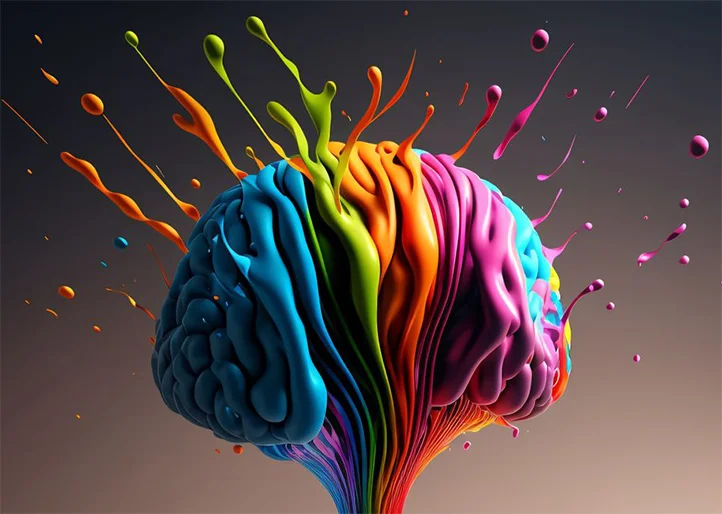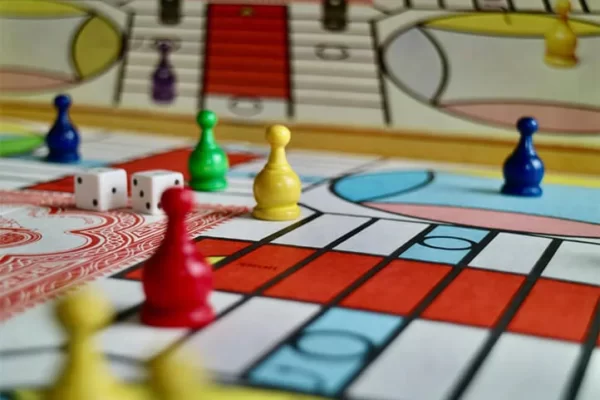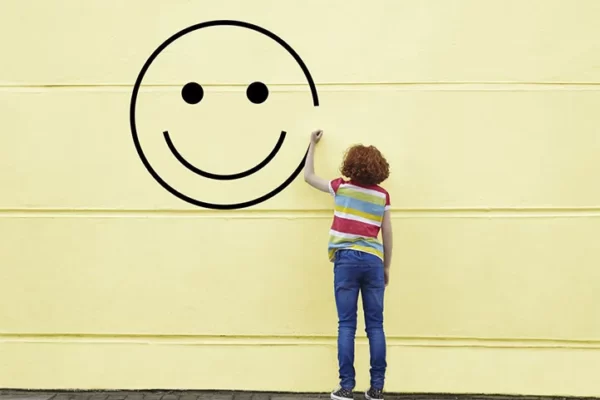Cognitive psychology is a branch of psychology that studies internal brain processes, including perception, attention, memory, and thinking, and examines how people understand, process, and remember information. Cognitive psychology uses scientific methods to explore thought processes and forms the foundation of many other psychological disciplines, such as educational, clinical, and social psychology.
Personal Growth: A Guide to Becoming the Best Version of Yourself
Personal growth is the process of enhancing your skills, mindset, emotional state, and overall quality of life through conscious self-reflection and self-improvement. It involves developing self-awareness, setting and achieving personal goals, cultivating life skills, and learning how to manage stress.
Play Therapy: The Psychotherapy of the Future – Prospects and Opportunities
Play therapy is a form of psychotherapy that uses play as the primary method of interaction and therapy. In this context, play is seen as a means of expressing thoughts and feelings, as well as a mode of communication. During play therapy, a person, especially a child, can express their internal conflicts and problems that […]
Positive Psychotherapy: The Power of Optimism in Fighting Mental Disorders
Positive psychotherapy is an approach in the field of mental health that emphasizes the positive aspects of human life, including happiness, optimism, enjoyment, and gratitude. It is based on the belief that all people strive for creativity, love, and self-actualization.
Positive Psychology: A Scientific Approach to True Happiness
Positive psychology is a branch of psychology that studies the positive aspects of human experience, such as positive emotions, happiness, gratitude, love, empathy, optimism, resilience, and how these positives can be used to improve the quality of life. It also explores willpower, life satisfaction, mindfulness, and many other aspects that contribute to our well-being.
What is Quadrobics and who are Quadrobers: Between Sport and Identity Psychology
Quadrobics is a modern youth activity that combines elements of physical exercise and role-playing animal behaviors. The main aspect of quadrobics is moving on all fours, like animals, while imitating their habits. Participants in this movement, known as “quadrobers,” often use animal masks as part of their gear and strive to replicate animal behavior as […]
Psychological Aikido: How to Stay Strong Under Any Circumstances
Psychological Aikido is an approach in psychology based on the principles of Aikido, a Japanese martial art that emphasizes using an opponent’s energy to one’s advantage rather than engaging in direct confrontation.
Integrative Psychotherapy: A Revolution in Providing Psychological Assistance
Integrative psychotherapy is a methodology that does not adhere to one specific psychotherapeutic approach but rather combines or integrates elements from various schools and theories of psychotherapy.
Animal-Assisted Therapy: How Love for Animals Intertwines with Science and Medicine
Animal-assisted therapy (zootherapy or pet therapy) is a type of therapy that involves interactions between patients and animals to improve overall human health and alleviate symptoms of various diseases. It is an interdisciplinary approach that combines elements of psychology, veterinary medicine, and social work.
Types of Feelings: Modern Research in the Field of Emotional Psychology
Feelings are complex states of consciousness that include various interactions such as emotional, psychological, and physical reactions to certain external and internal stimuli.
Self-Love: A Magical Potion for Boosting Self-Esteem
Self-love is a profound psychological state in which an individual values and respects themselves, their needs, desires, and feelings. It is not just about satisfaction or complacency but a productive attitude based on a realistic awareness of one’s qualities, strengths, and weaknesses, and the ability to accept oneself as one is.
Psychology of Jealousy: Where Does Love End and Dependence Begin?
Jealousy is a complex emotional state that is typically associated with experiencing a threat of losing a loved one or their attention to another. It can include feelings of fear, anxiety, distrust, hurt, anger, or insecurity.
Psychology of a Happy Life: Rules of Mental Comfort
The psychology of a happy life is a field of psychological research aimed at studying the factors, mechanisms, and conditions that contribute to increasing a person’s level of subjective well-being and happiness in life.
What it Takes to Become a Psychologist: Intertwining Science and Art in One Profession
Psychology as a profession is a field dedicated to the study of human behavioral and cognitive functions. Psychologists conduct research and apply their findings to help people manage and resolve various issues related to the mind, behavior, and emotional state.
Provocative Psychology: New Horizons in the Study of the Human Psyche
Provocative psychology is a psychotherapeutic approach based on the use of provocative methods and techniques to elicit strong emotional, cognitive, or behavioral reactions in clients or subjects. But for what purpose? That’s what we will discuss today.














